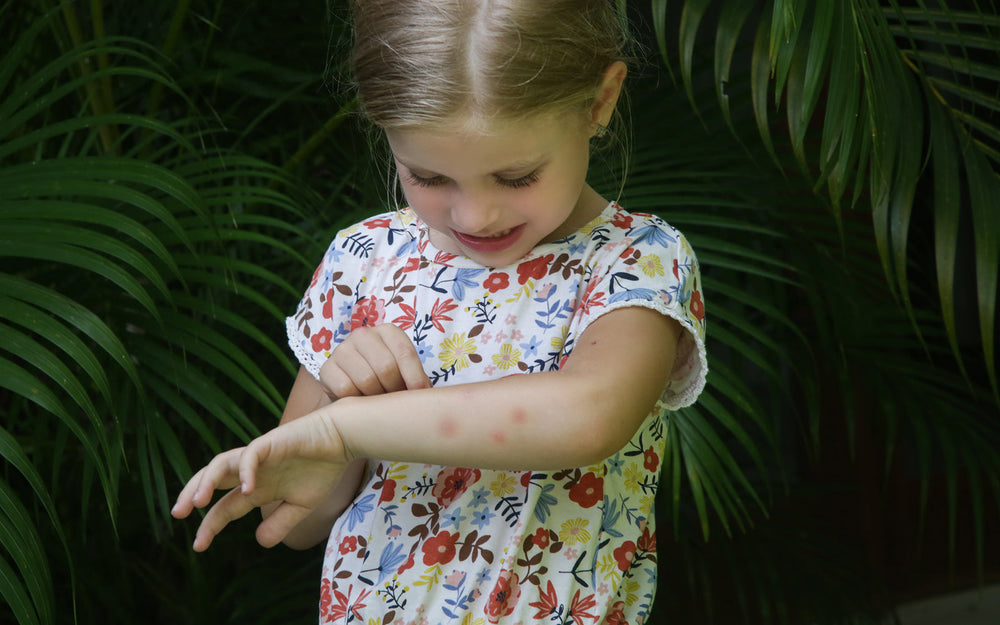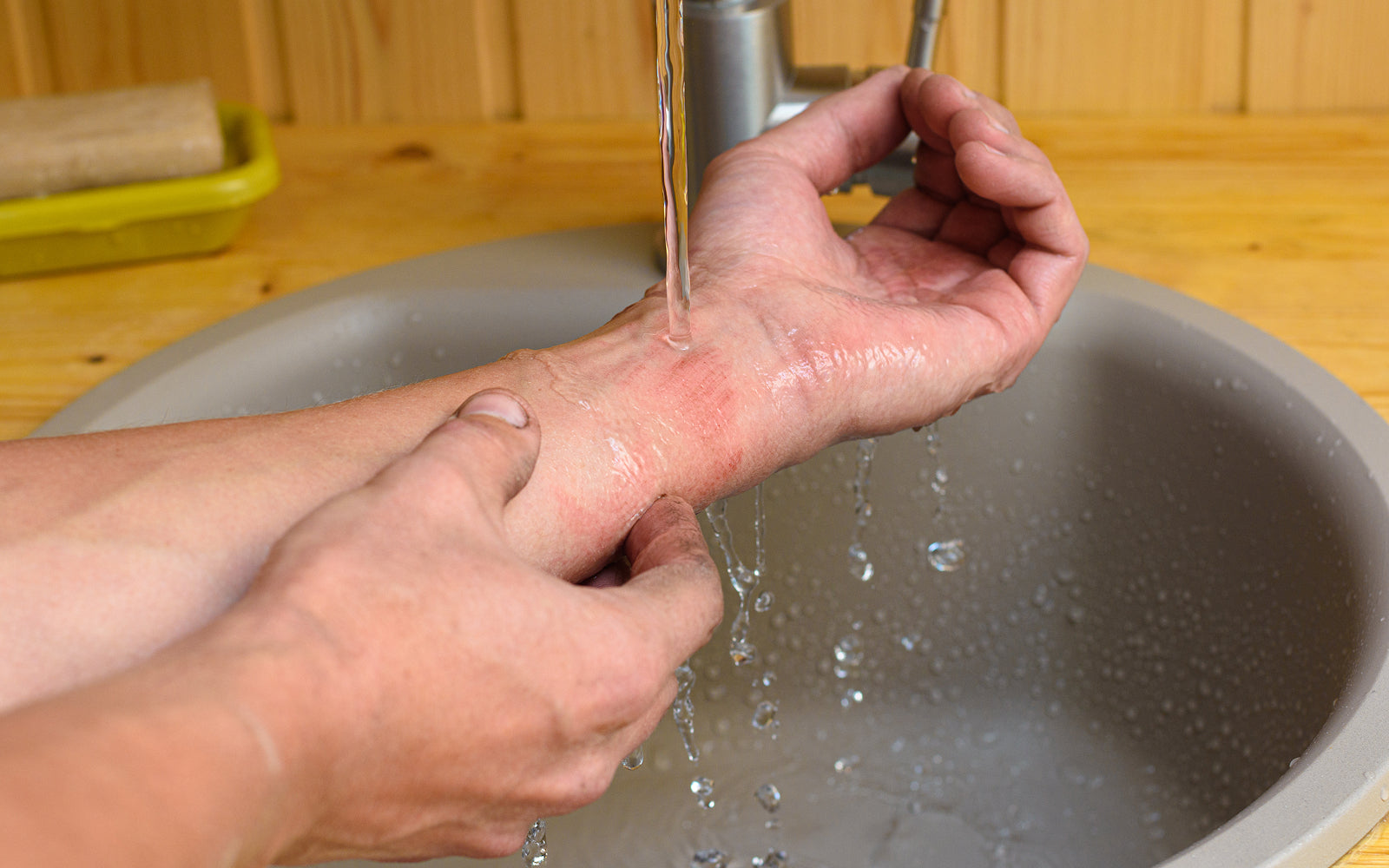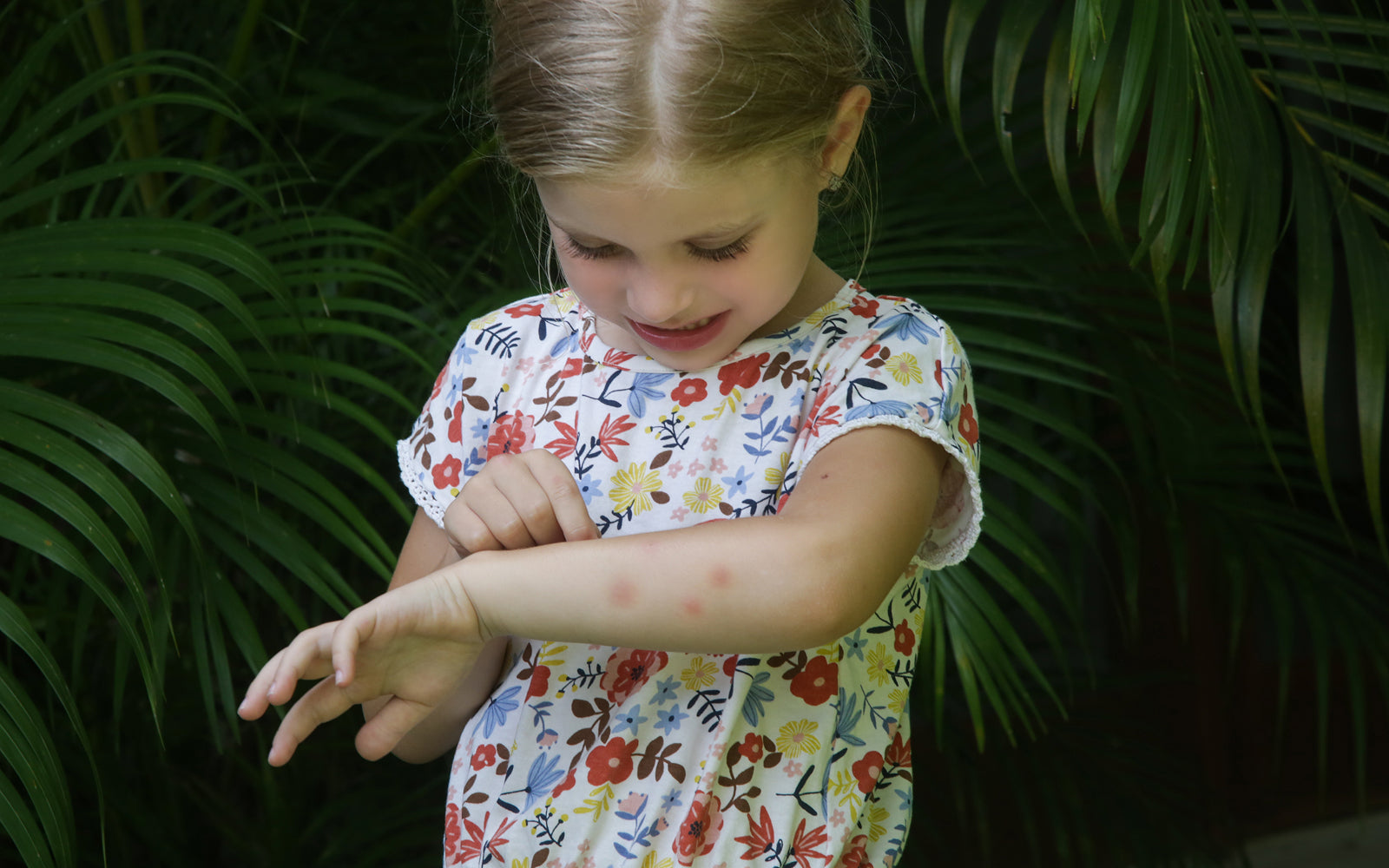
When Bugs Bite Back: How to Treat Bites & Stings
The changing seasons bring a variety of excitement and challenges, one being the surge of insects drawn to the blooming flowers and thriving vegetation. These insects, while often harmless, can become problematic when they bite or sting. Understanding how to treat and prevent these incidents can keep you and your family safe, comfortable, and able to enjoy the outdoors better.
Common Insects & How to Treat Their Bites and Stings
While insects play vital roles in our ecosystem, their bites and stings can turn a peaceful outdoor experience into an uncomfortable one. Here’s a guide to some common pests you might see in your backyard or on vacation, so you can better identify and treat their bites and stings:
Ants – Fire ants deliver painful stings, leaving swollen, red spots that often blister. Their stings can burn and itch for up to a week. Treat burning and itching symptoms with an anesthetic spray that contains benzocaine, like Dermoplast Pain, Burn, and Itch.
Bees – Known for their role in pollination, honeybees can only sting once. Their barbed stinger gets lodged in the skin causing immediate pain, swelling, and redness. Remove the stinger by gently scraping over it with a fingernail or piece of gauze. For more tips about bees, check out our What to Know About Bees article.
Chiggers – These juvenile mites often leave behind red, itchy lesions, but their bites are not felt immediately. The itching normally peaks a day or two after you’re bitten. Treat the itch with an anesthetic spray, calamine lotion, or hydrocortisone cream. An oral antihistamine can also help.
Fleas – They don’t just affect pets! Flea bites can cause severe itching and discomfort in humans, often resulting in small, red bumps.
Flies – Bites from deer, horse, and sand flies can leave behind painful welts. They are often harmless, but their bites can sometimes lead to allergic reactions or transmit diseases.
Hornets/Wasps/Yellowjackets – These aggressive insects are capable of stinging multiple times without losing their stingers. Their stings cause sharp pain, swelling, itching, and raised red welts. Wash affected areas with soap and water to remove any venom or other irritants. Apply a cold compress or cloth dampened with water to help reduce swelling.
Mosquitos– Their bites result in small, round, puffy bumps that can get swollen and itchy. Multiple bites are common and can be extremely itchy. Apply an anesthetic spray, lotion, or cream to help relieve itching.
Spiders – Most spiders don’t pose a threat to humans, but some can cause severe allergic reactions that require medical attention. Be aware of the spiders in your area and the symptoms of their bites.
Ticks – Their bites often cause pain or swelling at the affected site. If a rash develops or you have difficulty breathing, seek medical attention immediately.
When to seek medical attention
Monitor for adverse reactions like increased swelling, rashes, or signs of an allergic reaction, and seek medical care if necessary. Take an over-the-counter painkiller if the sting or bite is particularly painful. If symptoms of a bite or sting do not improve within a few days, it may be best to seek medical attention.
Preventing Bites and Stings
Take proactive actions to significantly reduce your risk of bites and stings:
-
Use insect repellent: Effective at keeping mosquitoes, ticks, and other bugs at bay.
-
Wear appropriate clothing: Stay away from bright colors and floral patterns to deter bees and other bugs. When hiking, wear a hat, long sleeves, and long to prevent ticks or other creepy crawlers from hitching a ride. Tuck your pants into your socks to ensure there are no opening for them to sneak in.
-
Avoid high-risk areas: Stay clear of tall grass and brush where ticks thrive.
-
Eliminate standing water: Remove containers that collect water to prevent mosquito breeding grounds.
-
Be cautious during pollinator seasons: Keep an eye out for nests to avoid disturbing bees and other pollinators.
-
Stay informed: Know which insects are common to your area and how to avoid interactions.
-
Be prepared: Keep first aid supplies on hand, as well as any epinephrine pens if anyone in your family has severe allergies.
If this information helps keep insects from bugging you too much this summer or fall, then we can rest easily knowing we’ve done our job here. Enjoy the outdoors…even if it’s just your own backyard!


